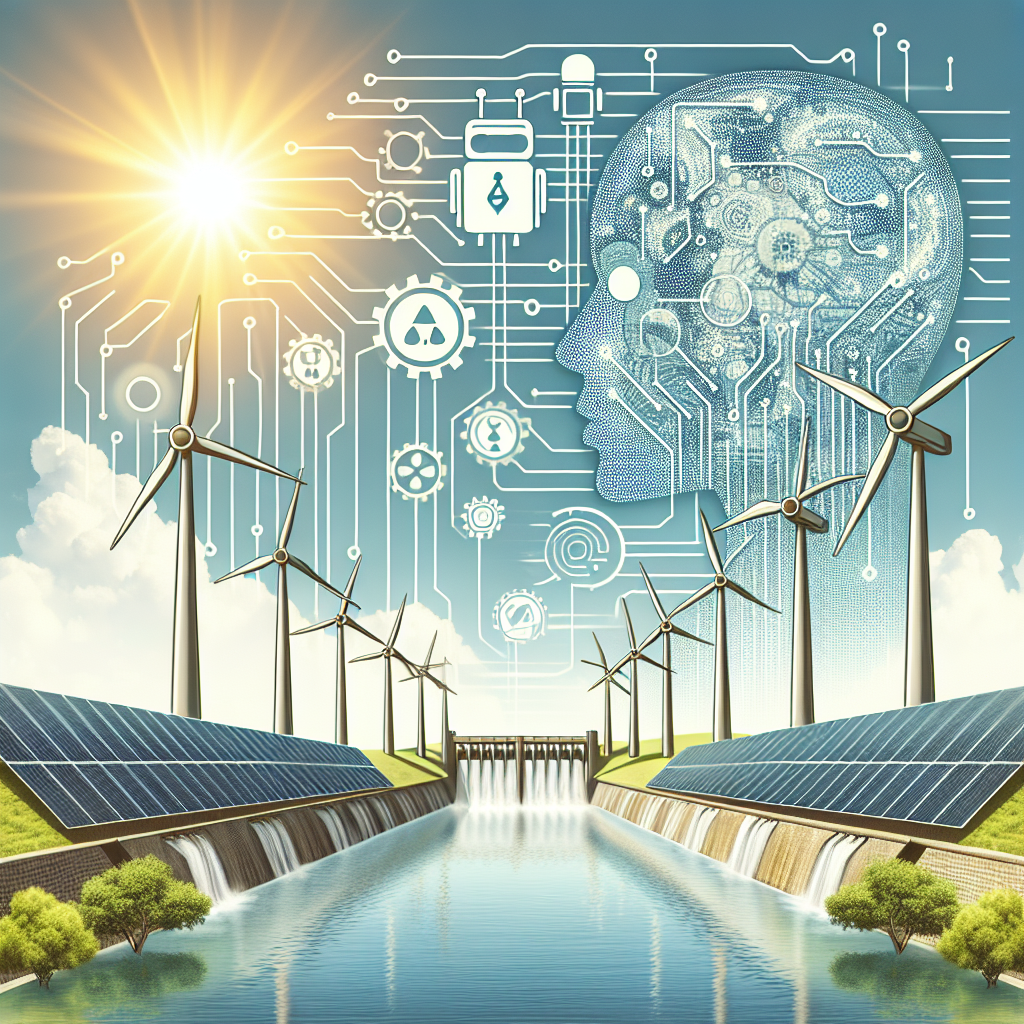In recent years, the global focus on renewable energy sources has increased significantly due to the growing concerns about climate change and the need to reduce our reliance on fossil fuels. One of the key technologies that has been instrumental in advancing renewable energy projects is artificial intelligence (AI). AI has the ability to analyze vast amounts of data, optimize system performance, and improve overall efficiency in renewable energy projects. In this article, we will explore the benefits of using AI in renewable energy projects and how it is revolutionizing the way we generate and consume clean energy.
1. Improved Efficiency: One of the primary benefits of using AI in renewable energy projects is the ability to optimize system performance and improve overall efficiency. AI algorithms can analyze data in real-time and make adjustments to energy production and consumption to maximize efficiency. This can lead to significant cost savings and reduce the overall environmental impact of renewable energy projects.
2. Predictive Maintenance: AI can also be used to predict when equipment in renewable energy projects is likely to fail or require maintenance. By analyzing data from sensors and other monitoring devices, AI algorithms can identify potential issues before they occur and schedule maintenance proactively. This can help to reduce downtime, extend the lifespan of equipment, and improve overall reliability.
3. Energy Forecasting: AI can also be used to forecast energy production from renewable sources such as solar and wind. By analyzing historical data, weather patterns, and other factors, AI algorithms can predict how much energy will be generated in the future. This information can be used to better plan for energy storage, grid management, and overall energy distribution.
4. Grid Optimization: AI can help to optimize the distribution of renewable energy on the grid by analyzing data in real-time and making adjustments to match supply and demand. This can help to reduce energy waste, improve grid stability, and increase overall efficiency in the energy system.
5. Cost Savings: By improving efficiency, reducing downtime, and optimizing grid management, AI can help to reduce the overall costs of renewable energy projects. This can make renewable energy more competitive with traditional energy sources and help to accelerate the transition to a clean energy future.
6. Scalability: AI can also help to scale up renewable energy projects by providing insights into how to optimize system performance as projects grow in size. This can help to reduce risks associated with large-scale projects and ensure that they are cost-effective and efficient.
7. Environmental Benefits: By increasing the efficiency of renewable energy projects, AI can help to reduce the environmental impact of energy production. This can help to lower greenhouse gas emissions, reduce air and water pollution, and protect natural habitats.
In conclusion, the benefits of using AI in renewable energy projects are clear. From improving efficiency and reliability to reducing costs and environmental impact, AI is revolutionizing the way we generate and consume clean energy. By harnessing the power of AI, we can accelerate the transition to a sustainable energy future and help to combat climate change.
FAQs:
Q: How does AI improve the efficiency of renewable energy projects?
A: AI can analyze data in real-time and make adjustments to energy production and consumption to maximize efficiency. This can lead to cost savings and reduce the overall environmental impact of renewable energy projects.
Q: Can AI predict when equipment in renewable energy projects will fail?
A: Yes, AI can be used to predict when equipment is likely to fail or require maintenance by analyzing data from sensors and other monitoring devices.
Q: How does AI help to optimize grid management in renewable energy projects?
A: AI can analyze data in real-time and make adjustments to match supply and demand on the grid. This can help to reduce energy waste, improve grid stability, and increase overall efficiency in the energy system.

